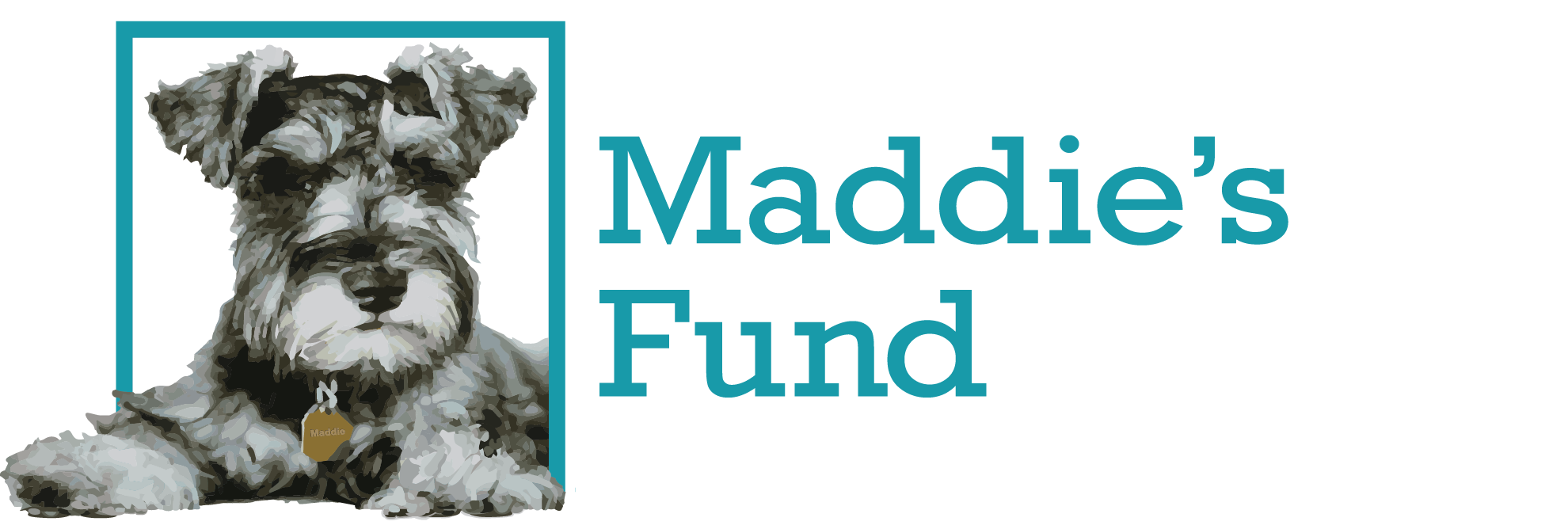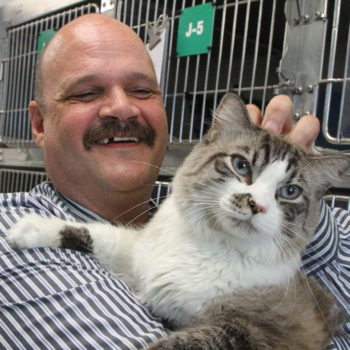What is the biggest obstacle to helping more animals in the community? Sometimes, it’s the policies of the animal shelters that are supposed to be helping those same animals.
That was the big Aha! Moment that drove Scott Trebatoski to embark on a journey to re-think the animal control and adoption policies of Hillsborough County, FL, where he heads up the Pet Resources Division.
Aha! Moments are, as the name suggests, those flashes of inspiration and connection that let us leap from where we are now to where we want to go, in an instant. That kind of immediate projection into the future works well in sci-fi movies and our imaginations, but in real life, it requires a lot of critical thinking and hard work. And it sometimes means admitting we’re the biggest obstacle to our own success.
Maddie’s Fund® is on a mission to help animal organizations and advocates experience, recognize and implement their own Aha! Moments, including presenting a series of Maddie Talks at HSUS Animal Care Expo in May of 2016. Trebatoski was one of those speakers, and he didn’t skimp on the tough love (emphasis on the “love,” of course!) for the sheltering world:
We’re at a time in this industry of great change, and for some of you that’s a lot of stress. But I’m going to tell you, you can turn that stress around into opportunity. What we need to do is look back at where we’ve gotten to and how we can move on from there. So for the past several decades, what have we told people? If you don’t want your pet, bring it to the shelter. We’ve been full at the shelter, why did we ask people to keep bringing them? In fact, we demanded they bring them back if they adopted them from us. How dare you think you could find better homes than we could find re-homing your pet. We were controllers, we were regulators; we need to stop that.
Not only were shelters encouraging people to bring or return pets to the shelter instead of helping them re-home the pets themselves, many were also making it tough for people to adopt. “We had really restrictive policies, we had hurdles for them to jump, we asked them questions, we treated them all as if they were that 1 percent of the ultimate bad owner.”
To top it off, shelters often go out into the field and pick up strays and bring them into their already-full shelters. What’s the point of that, he asked? There’s a better way:
Our animal control officers have always been out there educating: license your pet, microchip your pet. I’m a huge microchip advocate. But what value did that give us other than us giving them a call once the animal came to the shelter? Why did we bring that animal into the shelter? We knew where it was owned. Sometimes just a matter of a couple of houses away from where you picked it up. So we encourage our officers to take it home first, see if the people are home; if they’re not, we put a little door hanger and we’ll call them later.
We don’t do what some other animal control agencies do. Animal control has always been the enforcer, and so they would return an animal and write them a ticket for it being at-large. What a way to ruin your best PR moment ever. You’ve got a person who is super-happy that you brought their pet home, and then you’re going to write them $100 ticket.
Or they’re super-happy that they found their pet in the shelter and you’re going to charge them $100 to get it back out of the shelter. These are the times to enhance that positive experience. And these are times too, when people are going to be super-receptive.
“The only thing greater than having that Aha! Moment is seeing it put into action, and the positive results it will reap for years to come,” Trebatoski said. “I’ve been a big believer in trying something new and seeing if the results are better than the old. It’s simple to go back, but it can be hard to break the chains of convention to move forward. If you believe you can, you will succeed.”
View Trebatoski’s 9-minute talk below, and stay with us for more Aha! journeys!

